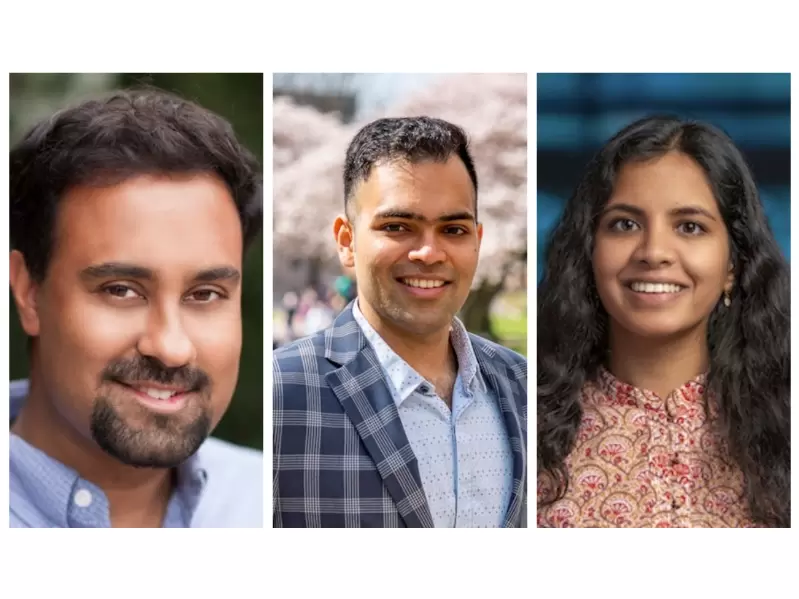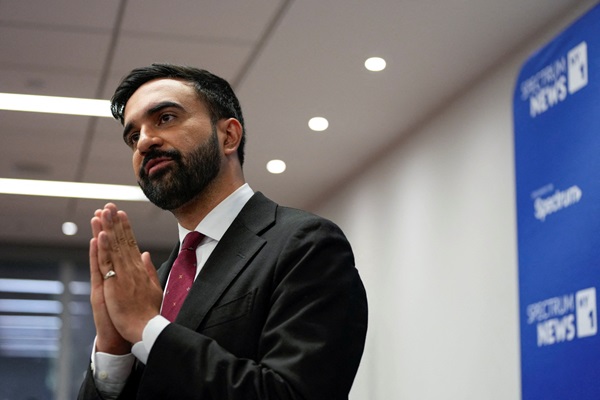Indian-origin researchers win Schmidt Sciences AI2050 fellowships
Stanford’s Surya Ganguli, IIT Madras’ Krishna Pillutla, and Penn’s Surbhi Goel are among 28 global scholars awarded $18 million in AI2050 grants.
 Surya Ganguli, Krishna Pillutla, and Surbhi Goel. / AI2050
Surya Ganguli, Krishna Pillutla, and Surbhi Goel. / AI2050
Indian-origin researchers Surya Ganguli, Krishna Pillutla, and Surbhi Goel are among 28 global scholars selected by Schmidt Sciences for its 2025 AI2050 fellowships, a program awarding more than $18 million to projects aimed at ensuring artificial intelligence benefits society.
The recipients include 21 early-career and seven senior fellows who will receive funding over three years. They are working on projects ranging from developing explainable AI systems to ensuring privacy in AI applications and improving the reliability of conversational AI.
ALSO READ: Indian-origin Vikram Sharma wins Australia’s Prime Minister’s Prize for Innovation
Surya Ganguli, a professor of applied physics at Stanford University and associate director at the Human-Centered AI Institute, was named a senior fellow. His research seeks to build a scientific foundation for explainable and trustworthy AI by uncovering how large language and generative models create and reason. His lab is developing analytic theories to explain creativity and reasoning in such systems, with the goal of improving interpretability and reliability.
Ganguli has previously received several honors, including the Sloan Fellowship, a Simons Investigator Award, and the Schmidt Science Polymath Award. His project connects neuroscience, control theory, and artificial intelligence to understand how AI models can recursively improve through interaction and feedback.
Krishna Pillutla, assistant professor at the Indian Institute of Technology, Madras, and principal investigator at the Centre for Responsible AI, was recognized as an early-career fellow. His work focuses on developing AI systems that maintain privacy and robustness, especially in sensitive areas such as healthcare and finance. His AI2050 project aims to create methods that prevent private data from being leaked while maintaining high performance.
Surbhi Goel, an assistant professor at the University of Pennsylvania, also received an early-career fellowship. Her research focuses on theoretical computer science and machine learning, aiming to make conversational AI systems safer and more predictable. Goel’s project uses mathematically grounded approaches to detect and prevent risky or erroneous AI behavior during interactions with humans.
“AI is underhyped, especially when it comes to its potential to benefit humanity,” said Eric Schmidt, co-founder of Schmidt Sciences. “The AI2050 fellowship was established to turn that potential into reality—by supporting the people and ideas shaping a healthier, more resilient and more secure world.”
Launched in 2022, the AI2050 program now includes 99 fellows across eight countries and 42 institutions. The initiative supports research that advances trustworthy and socially beneficial AI while fostering collaboration among scientists.
ADVERTISEMENT
ADVERTISEMENT
E Paper
Video



 Pranavi Sharma
Pranavi Sharma





.JPG)





Comments
Start the conversation
Become a member of New India Abroad to start commenting.
Sign Up Now
Already have an account? Login